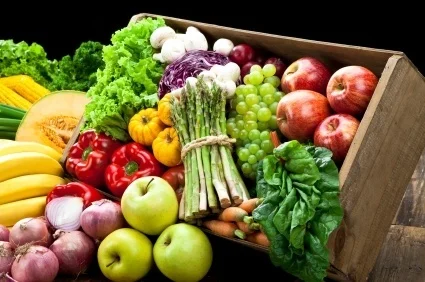Lukendo village in Bungoma County is a sleepy hamlet like any other in the rural areas. One may not expect much from such a village and its people.
But here, a farmer is engaging in what is known as ‘supermarket farming’, a method experts note is a sure way of fighting climate change. The method involves keeping and growing as many animals and crops as possible.
“My farm is a crops ‘supermarket’,” says Maurice Otunga who owns one-and-a-half acres. “It has nearly everything that an average resident in this area will need for his three important meals in a day,” adds the father of three.
Otunga is one of several farmers in the village who have changed their way of farming using skills acquired from Climate Change Adaptation Project (CAPro) run by Egerton University. “Climatic conditions have become unreliable. It is, therefore, important we avoid keeping all eggs in one basket,” he says.
Otunga keeps different livestock that include poultry like guinea fowls, chickens, ducks, turkeys and dairy cows, goats, rabbits and fish. He also grows various crops that include beans, maize, bananas, vegetables, tomatoes, strawberry, guavas, pawpaw, avocado and cane.
“Growing the many crops ensures that there is something ready for the market at least every day.” Otunga knows climatic conditions are not the same as they were some 20 years ago.
“The rainfall patterns have changed drastically, and the heat from the sun is intense compared to what I experienced when I was a young boy. ‘Supermarket farming’ helps us remain food secure,” says Otunga, whose neighbours mainly grow sugarcane.
The farmer, who studied at Kilifi Institute of Agriculture, crossbreeds his indigenous chickens with the exotic broilers, a practice that ensures he gets fast-growing Kenbro breed that fetch more money in the market.
The crossbreeds, according to experts, grow fast and are hardy enough to withstand the tropical climate and diseases and produce more eggs. “I have 20 Kenbro hens with five cocks. After every 21 days, my incubator hatches 55 chicks which I sell at Sh100 to farmers.” Otunga refers to his rabbits as “the ultimate livestock”.
“I went for rabbits because they eat little but fetch good money. I have 50 animals that I sell at a minimum of Sh1,500 each.” He has two fish ponds, one with 1,500 tilapia fingerlings and the other with 500 mud fish.
Charles Wathobio: How I make Sh. 100,000 profit per month from goat milk
He invested Sh60,000 in the ponds and Sh10,000 in four rabbits that he started with. A quarter acre of his land is fixed with drips and is dedicated to vegetables that include cabbages and sukuma wiki. On average, Otunga earns over Sh100,000 per month from his various ventures.
“I harvest rainwater from the roof of my house and store it in a borehole. I then pump the water into an elevated plastic tank from where it moves down to irrigate the farm,” says Otunga, who has a permanent house that he built from farming.
Prof Francis Lelo of Egerton University and the Principal Investigator for the CAPro Project, says the initiative aims at enhancing indigenous knowledge of adapting to climate change, through growing of resilient crops and hardy animals.
“Nearly all the climate adaptation techniques in all our sites were identified by the residents. And given the wide range of crops and animals they ended up with on their farms, they decided to refer to it as supermarket farming.”








